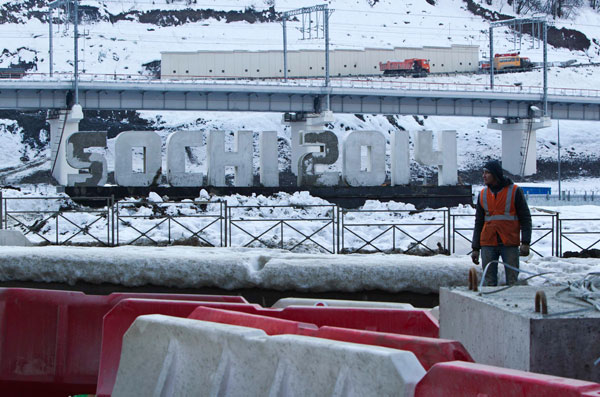

 |
|
A worker stands near traffic barriers at the Krasnaya Polyana resort near the Black Sea city of Sochi, Dec 24, 2013. Sochi will host the 2014 Winter Olympics in February. [Photo/Agencies] |
The slopes where ski races and other mountain events will be held, high above the sub-tropical Black Sea shore, should have two to seven metres (6.5 to 23 feet) of snow, said the head of Rosgidromet state forecasting Alexander Frolov.
Frolov also told a news briefing there was "a risk that a two, three-day cyclone may set in and significantly complicate our lives. Then the avalanche danger will increase and we will have to ... interrupt the Games".
Avalanches are common in winter and emergency services in Russia fire artillery rounds at the slopes to force the snowpack to come down safely.
"The second risk for us is low visibility when the cloud cover comes down," said Frolov.
President Vladimir Putin has staked his personal and political prestige on a successful Games in a location where most of the venues have had to be built from scratch.
Sochi Games chief Dmitry Chernyshenko has said the weather is viewed as a bigger potential problem for the organisers than security or infrastructure of a Games that has cost Russia around $50 billion.
Unusually warm temperatures last winter prompted organisers of Russia's first post-Soviet Olympics, and first Winter Games, to store about 450,000 cubic metres (16 million cubic feet) of snow in the mountains just in case.